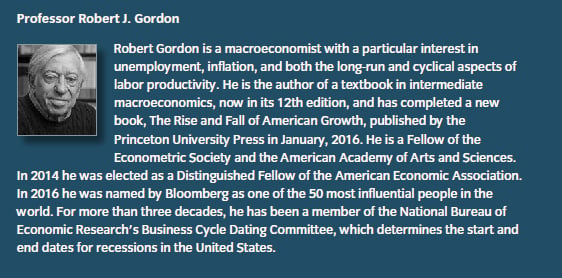FOR WHOLESALE INVESTORS ONLY.
This section of the website is for the use of Wholesale Investors (as defined under the Corporations Act) resident in Australia only, and is not suitable for, or to be relied upon by, retail investors. If you are not a Wholesale Investor resident in Australia, please leave this section of the website and enter a different section of the website which is appropriate to you, via the homepage.
Please read the following important information regarding the use of this section of the website. This Important Information should be read alongside, and is in addition to, the Legal Terms and Conditions (accessible by clicking on the 'Terms and Privacy' link at the bottom of each page of the website).
You can progress to your chosen area of this website by accepting this disclaimer. By clicking 'Accept' you confirm that you have read and accepted this Important Information for use of this section of the website and the Legal Terms and Conditions in their entirety (each as amended from time to time). If you do not agree to this Important Information or the Legal Terms and Conditions you must not use this section of the website.
This section of the website contains information on funds and services that may be sold, offered or delivered in Australia only. The information in this section of the website does not constitute either an offer to sell, a solicitation, or an offer to buy in a country in which this type of offer or solicitation is unlawful, or in which a person making such an offer or solicitation does not hold the necessary authorisation to do so. It is also not directed at investors, in those cases where the law prohibits this type of offer or solicitation from being made. Any applications or requests for further information received from persons not resident in a jurisdiction where the fund for which they are applying (or in respect of which they are seeking information) is registered, may be refused at Insight's discretion.
Information on the pages in this section of the website may not be suitable for all investors. Part of this section of the website contains products that are suitable for professional and institutional investors only. It is important that you do not rely upon the content of this website for investment decisions. Please contact a financial adviser before making any investment or financial decisions.
Important Disclosures
Opinions expressed whether in general, on the performance of individual funds, or in a wider economic context, represent the views of the contributor at the time of preparation. They are subject to change and should not be interpreted as investment advice, which Insight Investment is not authorised to give.
Past performance is not a guide to future performance. The value of investments and any income from them will fluctuate and is not guaranteed (this may be partly due to exchange rate fluctuations). Investors may not get back the full amount invested. Investment involves risk, including the possible loss of principal. No assurance can be given that the performance objectives of a given strategy will be achieved.
If you are in doubt about the suitability of an investment, please contact your financial adviser.
Regulatory Information and Registered Offices
In Australia the business of Insight is conducted by Insight Investment Australia Pty Ltd., which is regulated by the Australian Securities and Investments Commission (Licence No. 230541), and registered in Australia (ABN 69 076 812 381). Services in Australia are also carried out by IIIL and IIMGL, and each is exempt from the requirement to hold an Australian Financial Services licence in respect of the financial services it provides to wholesale investors in Australia and is authorised and regulated by the (UK) Financial Conduct Authority under UK laws, which differ from Australian laws. In Canada the services of Insight are offered by IIIL and IIMG.
Insight Investment Management (Global) Limited is authorised and regulated by the Financial Conduct Authority (no. 119308). Registered in England and Wales. Registered number: 00827982. Registered office: 160 Queen Victoria Street London EC4V 4LA. VAT number GB 577 7181 95.
Insight Investment Funds Management Limited is authorised and regulated by the Financial Conduct Authority (no. 122259). Registered in England and Wales. Registered number: 01835691. Registered office: 160 Queen Victoria Street London EC4V 4LA. VAT number GB 577 7181 95.
Insight Investment International Limited is authorised and regulated by the Financial Conduct Authority (no. 416024). Registered in England and Wales. Registered number: 03169281. Registered office: 160 Queen Victoria Street London EC4V 4LA. VAT number GB 577 7181 95.
Insight Investment Management (Europe) Limited is authorised and regulated by the Central Bank of Ireland. (Ref. No. C154503). Registered in Ireland. Registered number 581405. Registered office: Riverside Two, 43-49 Sir John Rogerson’s Quay, Dublin, D02 KV60.
Insight Investment is the corporate brand for the companies managed or administered by Insight Investment Management Limited. Insight Investment includes Insight Investment Management (Global) Limited (IIMG) and Insight Investment International Limited (IIIL), each of which provides asset management services. These companies may be referred to as ‘Insight’ or ‘Insight Investment’. In the United Kingdom the business of Insight is conducted by IIMG, Insight Investment Funds Management Limited and IIIL, which are registered in England (Nos. 00827982, 01835691 and 03169281 respectively). These companies’ registered office is at 160 Queen Victoria Street, London, EC4V 4LA. These companies are authorised and regulated by the Financial Conduct Authority. In certain European countries the services of Insight are offered by Insight Investment Management (Europe) Limited which is registered in Ireland (No. 581405) and regulated by the Central Bank of Ireland under CBI reference number C154503. In the United States the services of Insight are offered by IIIL and Insight North America LLC (INA), under the brand name Insight Investment. In Japan the services of Insight are offered by IIIL.
The Insight Investment group of companies are wholly owned subsidiaries of The Bank of New York Mellon Corporation. BNY Mellon is the corporate brand of The Bank of New York Mellon Corporation and may also be used as a generic term to reference the Corporation as a whole or its various subsidiaries generally. Products and services may be provided under various brand names and in various countries by subsidiaries, affiliates and joint ventures of The Bank of New York Mellon Corporation where authorized and regulated as required within each jurisdiction. Unless you are notified to the contrary, the products and services mentioned are not insured by the FDIC (or by any governmental entity) and are not guaranteed by or obligations of The Bank of New York Mellon Corporation or any of its affiliates. The Bank of New York Corporation assumes no responsibility for the accuracy or completeness of the above data and disclaims all expressed or implied warranties in connection therewith.









 Australia
Australia
























